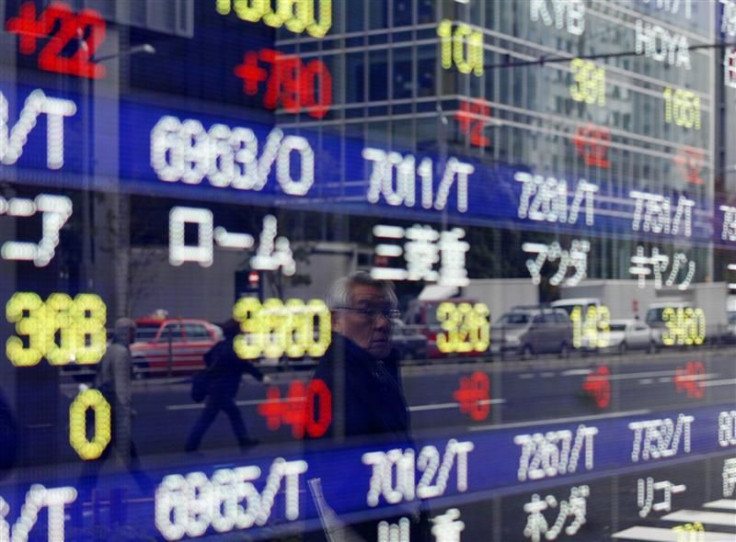Asian Markets Up, Yen Down On US Hopes, Japan Policy

Asian shares rose Friday amid an improving outlook for global economies and reduced anxiety over the euro zone, while the yen slid on renewed expectations for aggressive monetary easing in Japan.
Global markets rallied after China posted unexpectedly strong December trade data on Thursday.
World stock prices hit an eight-month high Thursday and oil prices climbed, with an encouraging view on the U.S. economy from a top Federal Reserve official driving the Standard & Poor's 500 index to its highest closing level in five years.
St. Louis Fed President James Bullard said he expects U.S. economic growth of 3.2 percent for this year and for 2014, and falling unemployment.
MSCI's broadest index of Asia-Pacific shares outside Japan inched up 0.2 percent, nearing its highest level since August 2011 hit last week, Reuters reported.
Australian shares were little moved, while South Korean shares opened up 0.5 percent.
Japan's Nikkei stock average opened up 1.3 percent as the yen accelerated its declines against the dollar and the euro.
"Short-term players who had earlier taken profits are now re-entering. A rise above 90 is within sight now," a trader at a Japanese bank told Reuters.
The dollar jumped to 89.35 yen, its highest since June 2010, on strengthening speculation the new government under Prime Minister Shinzo Abe will exert strong pressure on the Bank of Japan to take much bolder measures to defeat deflation and stimulate the Japanese economy. The euro surged to 118.58 yen, its highest since May 2011.
The yen's latest slide came after Abe said in an interview with the Nikkei newspaper published on Friday that the BOJ should consider maximizing employment as a monetary policy goal to help boost the economy.
The yen selling also gained momentum after data showed on Friday Japan logged a current account deficit in November for the first time in 10 months, as exports fell due to weak global demand and energy imports increased. The deficit stood at 222.4 billion yen ($2.5 billion), overshooting a 3.5 billion yen deficit forecast.
© Copyright IBTimes 2024. All rights reserved.











